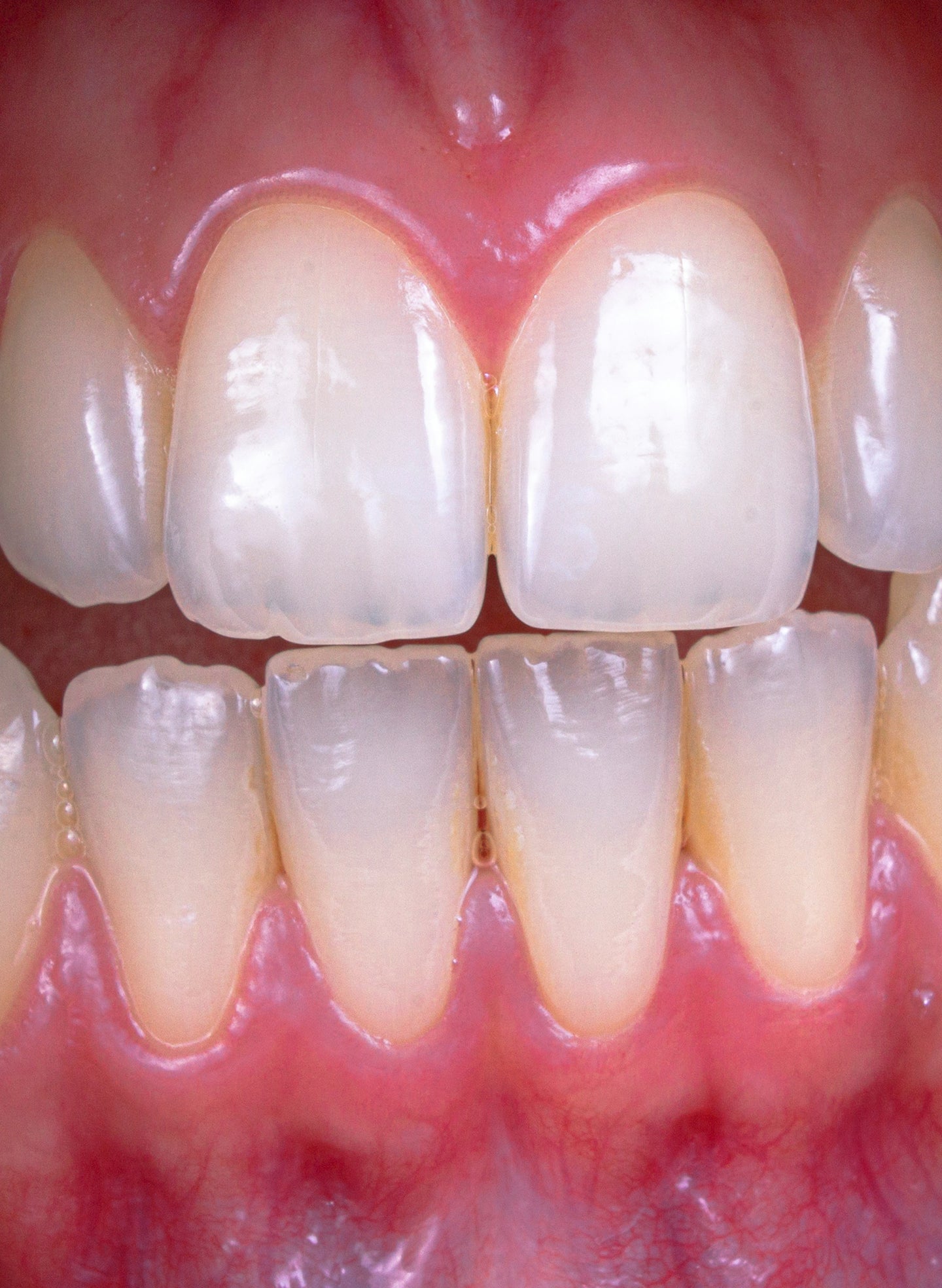Last updated 02.26.2025
Root canal vs. dental implant: Key differences
Root canals vs. dental implants: Learn the key differences, costs, and which option suits your dental needs.

Dental implants and root canals can each treat damaged or infected teeth, but the right procedure varies by each patient’s situation. Typically, root canals are used for damaged or infected teeth that can be saved. Dental implants, on the other hand, replace teeth that are damaged or decayed beyond saving or missing entirely. This article explores how each works and their differences, helping you understand what could work best for you. If you’d like to learn more about your options or you’re ready to take the next step in restoring your smile, schedule a consultation at your local ClearChoice Dental Implant Center today.
How dental implants work
A dental implant is a small post, most commonly titanium, that a dentist places in your jawbone to replace a missing or extracted tooth. The post serves as a stable artificial tooth root, fusing with the jawbone through osseointegration.
Your dental implant process begins with a free consultation at a local ClearChoice Dental Implant Center®, where you'll learn about the dental implant process and determine if you're a good candidate for treatment. If you decide to move forward, you'll have your Smile Design Appointment. This is a comprehensive review of your medical history, oral exam, and scan and impressions to start preparing the mold for your final smile. You'll get your final treatment plan, and even get to pick out the shade of your prosthetic teeth.
On the day of your surgery at a ClearChoice Dental Implant Center, your oral surgeon will place the implant in your jaw, and provide a pain management plan and care instructions. If you’re getting fixed full arch dental implant treatment, you'll receive a set of healing teeth while you wait for your incisions to heal, and for your implants to fuse with your jawbone through a process called osseointegration.
At ClearChoice Dental Implant Center, we pride ourselves on your satisfaction. Your final fitting will allow you to make adjustments to your fit and aesthetic preferences. Your final implant restoration will replace and mimic your natural tooth's look, feel, and function. A dental implant restoration can last a lifetime with proper care and maintenance.
How root canals work
A root canal is a basic dental procedure that removes damaged or infected tooth pulp (blood vessels, nerves, and connective tissue within the tooth). This can eliminate infection and save the tooth.
During the root canal process, the dentist will create a small opening in the tooth to access the pulp. They will use a special tool to carefully remove the pulp, and then thoroughly clean and disinfect the empty root canal. The dentist will then insert gutta-percha, a biocompatible putty-like material, to seal the tooth root. This guards against future infections. Finally, the dentist places a crown over the tooth to restore its strength and appearance while offering further protection.
Root canals vs. dental implants
Here are some key differences between root canals and dental implants:
Eligibility
The procedures serve different purposes, resulting in varying eligibility requirements. A root canal can be a good procedure for patients with damaged or infected teeth that can still be saved with quick action. The root canal itself allows the dentist to clean the infection and seal up any damage, eliminating the need for extraction.
On the other hand, dental implants may be necessary if the tooth is already missing or still remains but can’t be saved. Implants are often viable for patients with sufficient jawbone and good oral and overall health.
Cost
Dental implants may cost more than a root canal and a crown. However, as mentioned, the right treatment option for you can depend on several factors, including whether your tooth or teeth can be saved or are missing.
Insurance
Although ClearChoice does not accept insurance, we’ll provide guidance to help you file the claim with your insurance provider to see if you can get reimbursed. Learn more about third-party financing options to make dental implant treatment more manageable.
Recovery period
Root canal recovery is much quicker than dental implants. Patients generally experience mild to moderate discomfort for a couple of days, with pain fading and healing completed by the end of a week or a bit longer.
Implants require a longer recovery period. Healing the surgical site itself takes about as long as root canal recovery, but osseointegration — the fusion of implant to jawbone — can take several months. During this period, you must be careful about chewing near and cleaning the site to reduce the risk of complications.
Invasiveness
Dental implants are more invasive than root canals. Implants require the dentist to surgically access your jawbone and may involve additional invasive procedures like bone grafts. Meanwhile, root canals only require access to the inside of a tooth to remove the infected structures within.
Is a dental implant or root canal right for me?
Your dentist will let you know whether a dental implant or root canal may be best for you. The right option may depend on several factors:
Tooth condition: Dentists may recommend root canals if the tooth can be saved. If it can’t, they may instead suggest dental implants.
Aesthetics: Implants may give you a more natural look if the tooth is more severely damaged or decayed.
Longevity: Implants can last a lifetime with proper care and, notably, can’t get infected due to their artificiality. The crown placed after a root canal may require eventual replacement, and you must be careful to guard against reinfection.
Learn more about dental implants
Root canals and dental implants both help correct damaged teeth, but the situations they serve differ. Root canals can help save existing teeth that are not damaged significantly. However, implants from ClearChoice Dental Implants ® often work best for patients with teeth that are missing or can’t be saved. Plus, your local ClearChoice Dental Implant Center will work with third-party vendors to offer financing options that can help patients fit their dental implants into their budgets.
Visit your local ClearChoice Dental Implant Center to learn more. Let’s restore your smile!
Dental implant vs. root canal FAQs
When is it too late to get a root canal?
Teeth damaged beyond repair, severely decayed, structurally compromised, or loose may indicate that it’s too late for a root canal. Fortunately, the dentist can extract and replace the tooth with an implant.
What is the hardest tooth to get a root canal on?
Molars are the hardest teeth to get root canals. This is for a few reasons:
They are further back in the mouth
They have multiple roots
They have complex canal systems
You may want to work with an endodontist — a dental professional with specialized expertise in inner tooth issues — for molar root canals.
What are some signs you may need a dental implant?
Signs you may need a dental implant include:
Severe chipping and cracking
Significant decay
Difficulty chewing due to gaps
What are some signs you may need a root canal?
Signs you may need a root canal include:
Persistent toothaches and pain
Sensitivity to temperatures
Swelling in areas around the tooth



